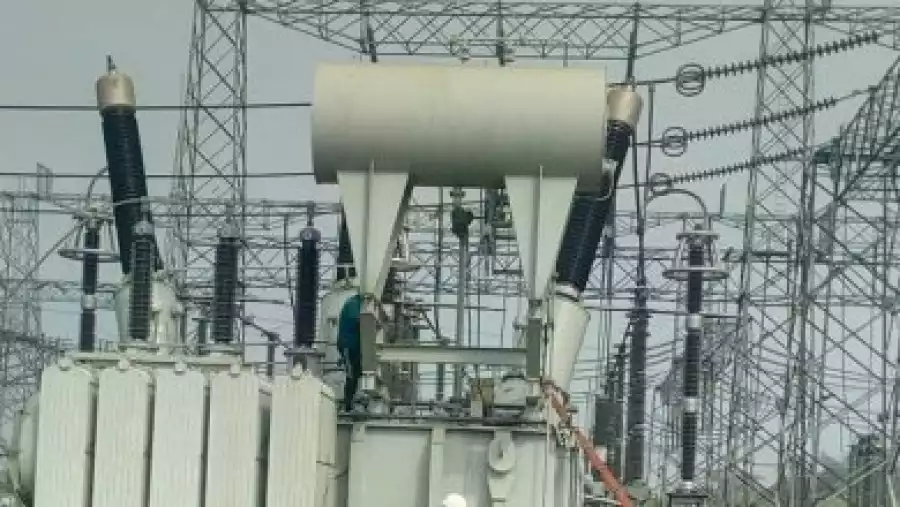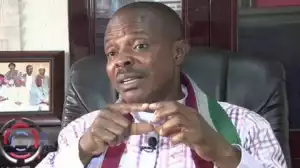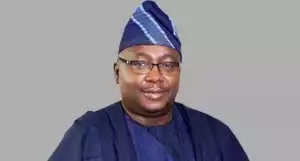THE drama playing out at the Abuja Electricity Distribution Company over reported unpaid debts and a new Central Bank of Nigeria report indicating a combined indebtedness of about N820 billion by power firms refocus national attention on the troubled power sector. With power shortages persisting, debts rising and the economy in crisis, there should be a more effective strategy to solve the power quagmire.

There are multifarious problems in the sector. Mounting debts constitute one. Some of the Nigerian banks that took the plunge more than eight years ago to lend to buyers of power distribution and generation companies must be ruing that decision. The high expectations of a new dawn in the sector and the economy when the assets were handed over to the core investors on November 1, 2013 have been dashed to smithereens. Instead, the sector continues to underperform.
Most of the core investors are apparently yet to pay off the acquisition debt. In 2020, the power distribution companies recommended that the acquisition debt “be refinanced by the Bank of Industry and extended on a longer-term basis (10 years), with a single-digit interest rate and a moratorium of two years to allow the market to stabilise.”
Earlier this month, it was reported that the United Bank of Africa Plc, which provided the loan for the acquisition of 60 per cent equity for the AEDC, had taken over the majority stake in the company. The Nigerian Electricity Regulatory Commission and the Bureau of Public Enterprises stated in a joint statement that a dispute among competing factions of AEDC’s core investor, KANN Utility Company, led to a row with UBA over the inability to service its debt.
Evidently, the debt owed to banks by the power sector investors poses a serious challenge to the lenders. Bank loans to the power sector stood at N819.97 billion in August, according to the CBN. CSL Stockbrokers, a subsidiary of FCMB Group, warned in a recent report that “if power sector loans become impaired, this leads to an increase in the cost of risk for these banks.” Non-performing loans in the power sector stood at N33.22 billion at the end of 2020, out of N1.23 trillion NPLs recorded by banks, according to the National Bureau of Statistics.
Considering the fraud that accompanied the power assets sale, it is not surprising that the sector is plagued by a severe liquidity crisis. The sale of the 11 DisCos and six GenCos that were created from the former state monopoly was compromised. They were largely sold to emergency local consortia formed by politicians and businessmen with no experience in the specialised strategic sector and lacking the wherewithal to turn the assets around. Now, the chickens have come home to roost.
The industry regulator, NERC, says the financial viability of the Nigerian electricity supply industry remains a major challenge threatening its sustainability. It attributes the liquidity challenge partly to the non-implementation of cost-reflective tariffs, high technical and commercial losses exacerbated by energy theft and consumers’ apathy to payments under the widely prevailing fraudulent practice of “estimated billing.”
This self-inflicted mess has seen the Federal Government undertake several interventions in a bid to bolster the sector’s financial capability. In January 2020, the National Economic Council, which investigated the ownership structure of the DisCos, lamented that the Federal Government injected N1.7 trillion of public funds into the privatised power sector in three years. Despite this, the investors and the government have barely improved the electricity problem eight years after privatisation, despite several government interventions.
The DisCos’ acquisition debt unsettles both the power and the banking sectors because the core investors lacked the necessary financial muscle right from the start. “The purpose of privatising the Discos and GenCos,” said the then Chairman, Technical Committee of the National Council on Privatisation, Atedo Peterside, “was not just to transfer ownership of the assets. The primary purpose was to bring into play new owners with ‘deep pockets’ who could finance and/or access financing for the rapid restoration of lost capacity and/or add significant new capacity to make up for decades of government neglect and mismanagement.”
The transformation envisaged remains a mirage. Power generation is still hovering around 4,000 megawatts. More than 60 per cent of registered customers do not have prepaid meters. Aggregate Technical, Commercial and Collection losses are still high. Generators powered by petrol, diesel, and gas account for 48.6 per cent of the electricity consumed in the country, says the NBS.
The DisCos, struggling to meet their debt and other obligations, remain the weakest link in the electricity value chain. According to the World Bank, 85 million Nigerians do not have access to grid electricity, making Nigeria the country with the largest energy access deficit in the world. “The lack of reliable power is a significant constraint for citizens and businesses, resulting in annual economic losses estimated at $26.2 billion (N10.1 trillion), which is equivalent to about 2.0 per cent of GDP,” it said. The sector, therefore, needs radical and effective intervention to lift it out of the doldrums.
The Federal Government should join forces with the banks to put pressure on the DisCos to restructure their debts or drastically reduce their shareholding. The refinancing option suggested by the DisCos should be dismissed as it will leave the firms in the hands of the current owners whose incompetence has cost the country dearly. Finance is crucial, but the current owners also lack the technical and managerial expertise to run the complex business. The best option is a transfer of ownership to established international players in the power sector. These will provide the expertise and the much needed foreign direct investment, a major goal of the privatisation that the country missed in the mismanaged auction.
Those who cannot service their debts should be compelled to sell to competent investors that can inject funds into the companies. Under prodding by the regulator, banks should aggressively seek loan recovery. The DisCos’ inability to provide meters to customers had prompted the government last year to come up with a metering programme being funded by the CBN and the World Bank.
The government should also be prepared to let go of its shareholding in the DisCos and restrict itself to effective regulation. Stringent regulatory measures are urgently needed to send the message clearly to the DisCos and other underperforming operators to shape up or ship out.








![Deadly Sniper (2019) [Chinese]](https://www.memesng.com/r/storage.waploaded.com/images/445d35579dd40dc9abd099188696abad.jpeg?w=50&ulb=true&ssl=1)
![After The Fever (2023) [Japanese]](https://www.memesng.com/r/storage.waploaded.com/images/8e8027b05e107ac11f478399c5faafa8.jpg?w=50&ulb=true&ssl=1)

![Dirty Ice Cream (2024) [Filipino]](https://www.memesng.com/r/storage.waploaded.com/images/d931a80987882041541ad5d0f4b4ef00.jpg?w=50&ulb=true&ssl=1)






![Saamu Alajo - Return Of Ibafo (Episode 178) [Yoruba Comedy Movie]](https://www.memesng.com/r/storage.waploaded.com/images/631dfcffefdb0de0ba7220ddfca4401b.jpg?w=50&ulb=true&ssl=1)




![Lady Revenger Returns from the Fire (2024) [Chinese] (TV series)](https://www.memesng.com/r/storage.waploaded.com/images/6de766fa429680dccd2fbc8c665663dd.jpg?w=50&ulb=true&ssl=1)
![Regeneration (2024) [Chinese] (TV series)](https://www.memesng.com/r/storage.waploaded.com/images/3b0796cda903106146534bff88882934.jpg?w=50&ulb=true&ssl=1)
![Ranneeti Balakot and Beyond (2024) [Hindi] (TV series)](https://www.memesng.com/r/storage.waploaded.com/images/3af7e9b50b22ccb50bcfb80ed61978d6.jpg?w=50&ulb=true&ssl=1)
![Whats Wrong with Secretary Kim (2024) [Tagalog] (TV series)](https://www.memesng.com/r/storage.waploaded.com/images/60aa360828413c041ff1d0fe50407b64.jpg?w=50&ulb=true&ssl=1)

{{comment.anon_name ?? comment.full_name}}
{{timeAgo(comment.date_added)}}
{{comment.body}}
{{subComment.anon_name ?? subComment.full_name}}
{{timeAgo(subComment.date_added)}}
{{subComment.body}}